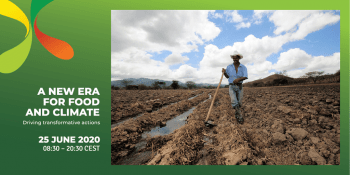Grandma Peris Owiti and her powerful climate-smart plants
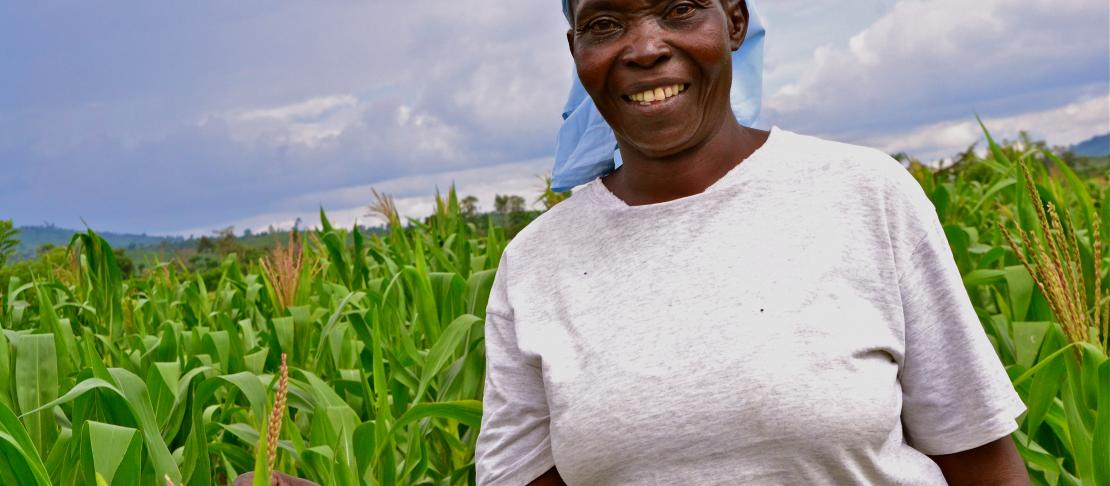
Peris Owiti, a mother, grandmother, and climate-smart farming champion, is learning how to adapt to climate change, and empowering neighbouring women to follow suit.
Peris Owiti proudly stands among her new sorghum plants, which are now almost taller than her. Though sorghum is a commonly grown cereal in Africa, this is a climate-smart hybrid variety, which Peris has been growing as part of a demonstration plot the last few months.
Peris has joined a program to test drought-and-pest resistant seeds, and fast-maturing hybrid crops. Her demonstration is part of a climate-smart farming initiative led by the CGIAR Research Program on Climate Change, Agriculture and Food Security (CCAFS) and local partners in East Africa.
Having undergone trainings on various hybrid crops, and armed with new seeds, Peris is using her demonstration plot to inspire and train other women in the area. This way, they can see for themselves what these new farming practices can offer them and their families.
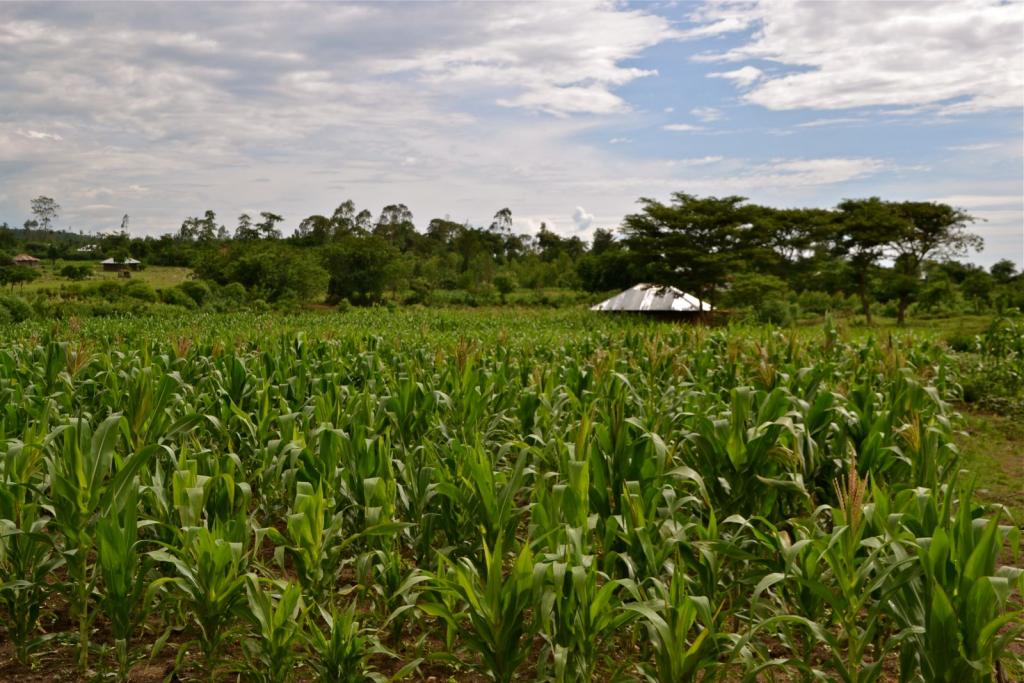
Peris Owiti's demonstration farm where she shows other women what types of plants they can grow and how. Photo: C.schubert
Learning what works in a changing climate
In Western Kenya, rains can be unpredictable and downpours can bring a whole month of rain all at once. Researchers from CCAFS are trying to help farmers adapt their practices to the changing climate, and identify alternative income-generating activities.
New hybrid crops may offer solutions, while beekeeping, tree nurseries, weaving baskets, and making ropes offer livelihood opportunities. Taken together, these activities could help farmers like Peris cope with climate change in the long-term.
Peris is but one of many champion farmers in the Nyando site in Western Kenya where  CCAFS works in East Africa. With the support from CCAFS East Africa and partners World Neighbours, Kenya Agriculture Research Institute (KARI) and ViAgroforestry, Peris and her fellow farmers are championing various climate-smart agriculture practices to help researchers understand what works, and how various practices can be even more effective when used together.
CCAFS works in East Africa. With the support from CCAFS East Africa and partners World Neighbours, Kenya Agriculture Research Institute (KARI) and ViAgroforestry, Peris and her fellow farmers are championing various climate-smart agriculture practices to help researchers understand what works, and how various practices can be even more effective when used together.
Climate-smart agriculture practices have the potential in helping farmers adapt to and mitigate climate change while boosting yields and improving incomes.
To date, there are 50 champion farmers in Western Kenya, within so called “Climate smart villages” who are leading, testing and evaluating farming practices that could prove to be long-term solutions for Kenyan farmers in the future.
Comparing new with old crops
Peris’ demonstration crops are growing well. They include drought resistant sukuma wiki, a nutritious green vegetable available year-round, fast-maturing sorghum, hybrid pigeon-and cowpeas, green grams and beans. Peris keeps careful records of her test-activities, which she shares with researchers involved in the project. In turn, she gets to keep the crops providing her with an additional income.
Aside from her demonstration plot, Peris has her own plot of land where she has planted the local, traditional sorghum. Compared to the hybrid varieties, they are neither as tall nor as mature as the fast-maturing sorghum, which she planted more than a month later.
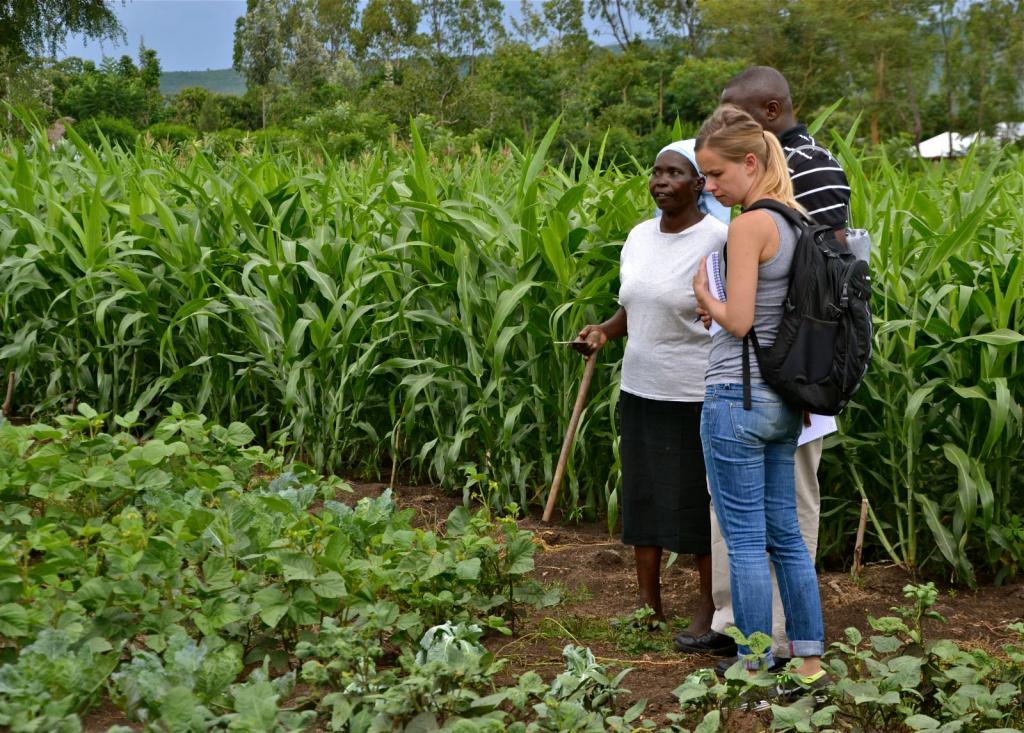
Peris Owiti showing CCAFS communicators around her plot. behind the hybrid sorghum and the demonstration plot and in front, peris' own farm. photo: P. Kimeli
The March-May rains have failed once again, and Peris reckons the local plants might not even survive. But this year she can rest assured that there will be something on the table and in her pocket, as the hybrid sorghum is almost ready to be harvested. Peris has made many discoveries through growing and comparing the two plots:
I am trying to learn which seeds and crops can do well in this area and then I try and implement what I learn from the demonstration plot on my own land. I am now planning to plant hybrid sorghum on my own side too,” says Peris.
I discovered that it got striga and also problems with stalk borer on my hybrid sorghum. So now when I plant this crop on my own plot I will be better prepared for those problems,“ she continues.
Striga is a common parasitic plant in Africa, pestering many farmers across the continent, causing considerable crop losses and sometimes wiping out entire yields. Stalk borers is a common problem for small-scale farmers too, which is in essence caterpillars feeding on leaves right next to the stem killing the growing points of the plant.

Peris has also had issues with Red Spider Mites on her Green Grams. Next time she plants she will make sure to use the right pesticides. Photo: C.Schubert (CCAFS)
Hybrid crops can mean hybrid problems
Farmers, such as Peris, are providing valuable insights to researchers. Not only can they shed light on which crops grow well in certain conditions, they also reveal why some farmers may choose not to adopt a crop, no matter how well it grows.
Neighboring farmers told us about a new hybrid sorghum that is drought resistant but tastes very bitter. As it is so unappetizing, it has been very hard to sell, which is in important insight for the project.
Innovating, one woman at a time
Peris is very keen to speak with women specifically, as it can be hard for them to feel comfortable enough to ask men questions about new farming practices.
Gender expert Mary Nyasimi, based with CCAFS East Africa program, explains that
women in Kenya many times discuss new farm practices in their women groups. This makes it important to include female champion farmers within the project, to ensure that women get role models to look up, a natural informant within their networks, as well as feel comfortable around when learning about new farming techniques and crops.”
It is difficult for women to adapt to climate change due to the restrictive social-cultural practices that hinder them from accessing resources. Therefore having women role models in the village is the missing link in agricultural adaptation at the farm level because a women champion farmer is someone who has broken through the barriers and can inspire other women to do the same,” Mary continues.
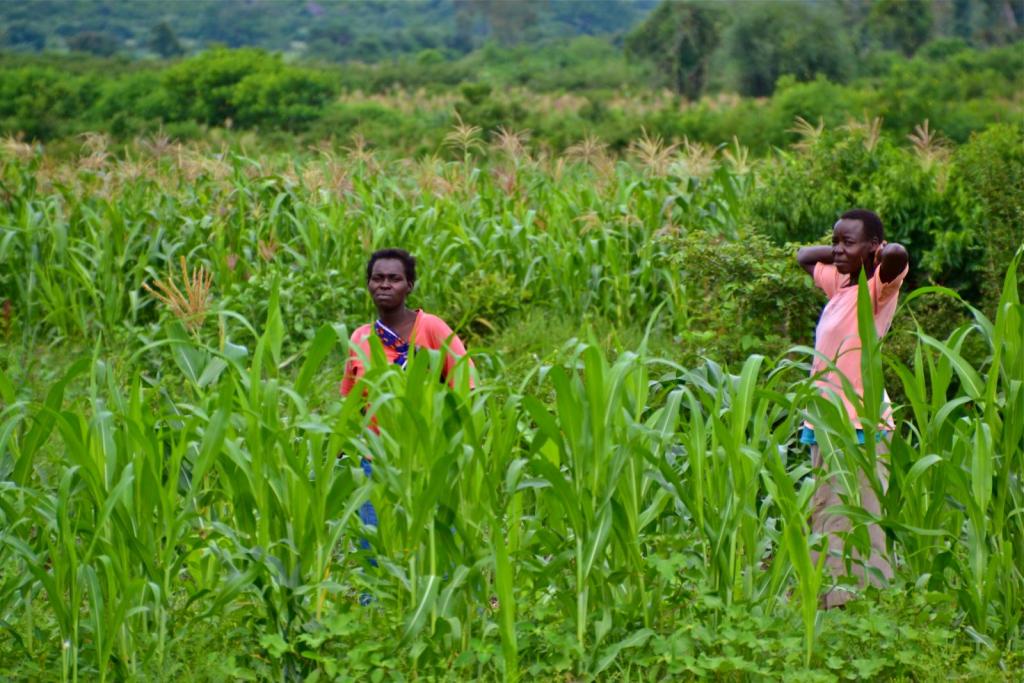
Having female role models within the climate-smart village project is key, says gender expert mary nyasimi. Photo: c.schubert (CCAFS)
“I have already influenced five women in my area to try the hybrid sorghum that I have planted. When they come over they can see with their own eyes that my crops are doing well and that could benefit them too,” Peris says.
Her positive energy and eagerness can sow the seeds of innovation in this vulnerable community, and help women farmers secure their futures, even as climate changes.
Watch video interview: Peris Owiti talks about her demonstration plot for women


